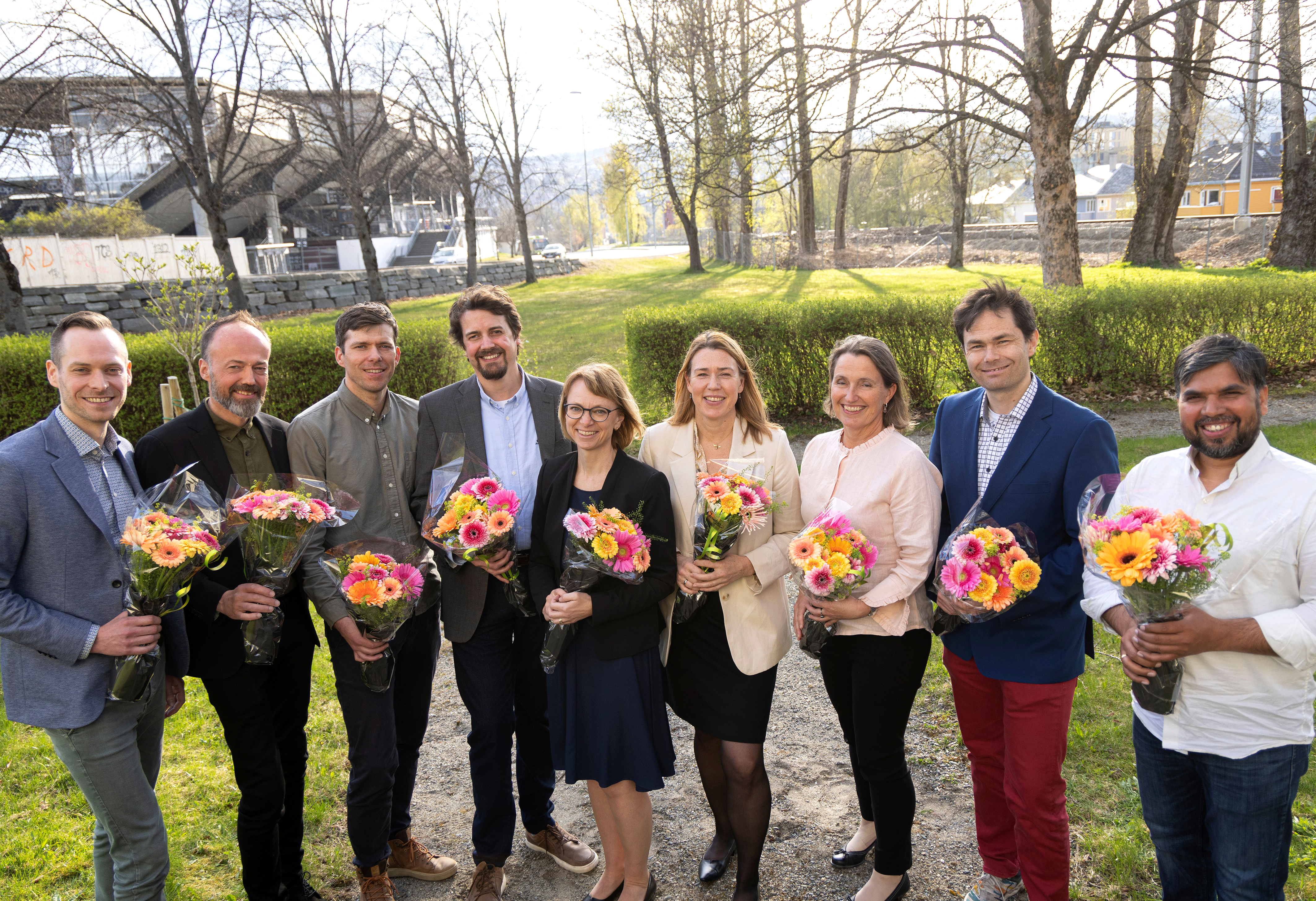Centre for post-growth futures
Gemini Centre for post-growth futures

The Gemini centre for post-growth futures brings together research communities at NTNU, NTNU Social Research, and the University of Oslo to coordinate, inspire and further develop interconnections on post-growth relating to sufficiency, community economies and strong sustainability. The centre’s primary purpose is to strengthen the research field of post-growth through world-class international comparative research and significant contributions to public discourse.
As an emerging interdisciplinary research area, post-growth broadly refers to acknowledged needs for moderation, limits, austerity, and reduced production and consumption intensity, in response to the societal and environmental harms of capitalist growth logics. The term thus encompasses research strands on degrowth, sufficiency, post-capitalism, community economies, well-being, and strong sustainability, which all set out to critically question technological innovation, efficiency improvements, and market-based solutions to grand societal challenges.
The partners are highly active, internationally oriented emerging scholars motivated to further post-growth research. Gemini centre status will enable us to pursue a plan for collaboration and cross-pollinating across our respective strategic research efforts to launch a highly ambitious bid for a national centre and/or EU project within four years.
Areas of collaboration
- Research: Dedicated meeting spaces for synergies and inspiration across our groups and projects will build momentum towards the ambitious end goal of a major international research effort or centre (year 4). A Gemini Centre status will facilitate such endeavors
- Education: Novel education activities within and across our institutions
- Internationalisation: Active enrolment and engagement with leading international scholars from across our networks
- Contributions to the public sphere: Active participation in public discourse to create visibility around our research field through media presence, collaboration with artists, analysis, and collaboration with societal groups and actors.
The participating research groups
The partners complement each other well, both in terms of research competencies and in terms of institutional strategic priorities. At the partner institutions, approximately 35 researchers work in areas relevant to the Gemini centre topics NTNU Faculty of Humanities, NTNU Faculty of Social Sciences, NTNU Social Research, SiNTEF, UiO SUM.
The Department of Interdisciplinary Studies of Cultures (KULT) at NTNU has experience with various topics on sustainability, energy, everyday life, and the interrelations between societal and technological change. KULT is hosting an ERC starting grant focusing on sufficiency, and the department is actively engaged with new education and research initiatives relating to strong sustainability.
The Department of Anthropology at NTNU includes research groups focusing on sustainability and technology, global inequality, and initiatives focusing on emerging educational methods and technologies connecting research and education on sustainability and energy and are now writing two EU proposals on post-growth. The core theoretical and philosophical focus in this respect would be to understand sustainability as technologies of management and control.
The Department of Geography at NTNU includes research groups on just and sustainable transitions and political ecology and landscape governance (PELG). PELG increasingly focuses on the link between community economies and society-nature relations, with community economies theory and practice at the Centre. Many research projects across the department support the SU faculty’s missions on social sustainability, innovation, and interdisciplinary interaction.
NTNU Social Research established a dedicated research group on post-growth in late 2022. This group is already responsible for one submitted application to RCN’s call on consumption reduction, a separate submitted application on sufficiency in digitalization, and clear plans and dedicated funding towards publication and acquisition efforts throughout 2023 and into 2024, including contributions to an FME proposal. On-going projects (CURE, Autowork) examine relevant topics such as energy transition resistance.
SINTEF Ocean driver forskning og innovasjon knyttet til havrommet for nasjonal og internasjonal industri. Mange av vår tids samfunnsutfordringer vil finne sin løsning gjennom bærekraftig utnyttelse av havet. Transport, mat- og energiproduksjon er ryggraden for havbaserte industrier og kjerneområder for SINTEF Ocean. Vi jobber flerfaglig og på tvers av havnæringer for utvikling av den blå økonomien og en bærekraftig forvaltning av marine ressurser og naturmangfold.
SINTEF Industry delivers technology for a better society with cutting-edge expertise in sustainable production and value creation.
SINTEF Community is a research institute for the sustainable development of buildings, infrastructure and mobility. We create value for our customers and society through research and development, research-based consultancy, certification and knowledge dissemination through, among others, the SINTEF Building Research Design Guides. We offer specialist expertise in areas such as architecture, building, water, transport, digital transport solutions and economics. We develop future solutions for the built society.
Centre for Development and the Environment (SUM) is a dynamic, international research centre with broad expertise within social and environmental sustainability. We use an interdisciplinary approach to understand local and global challenges and how they can be solved. Our researchers work both nationally and internationally and have regional knowledge of Asia, Africa, Latin America and Europe. SUM both offers individual courses at master’s level and the MA programme Development, Environment and Cultural Change, which is one of the most popular English-language programmes at UiO.
Members from SUM’s research group Sustainable consumption and energy equity are participating in the Gemini Centre for post-growth futures. The research group explores the social and political challenges associated with sustainable patterns of consumption and equitable solutions for energy provision and consumption. The group is also affiliated with the FME Include - Research centre for socially inclusive energy transitions, hosted by SUM.
Contacts:
Arve Hansen, arve.hansen@sum.uio.no
Ulrikke Wethal, u.b.wethal@sum.uio.no
